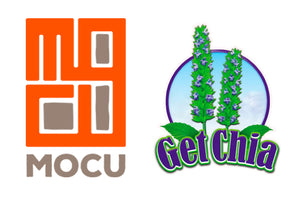7 Golden Rules of Clean & Lean Eating

Maybe a new raw cafe has sprung up in your neighborhood, or you read about Katy Perry and Gwyneth Paltrow being fans. Either way, eating "clean" is becoming a way of life — but what does it actually mean, and how is it good for the body?
Clean eating is actually quite a simple concept. Rather than revolving around the idea of ingesting more or less of specific things (for instance, fewer calories or more protein), the idea is about being mindful of the food's pathway between its origin and your plate.
At its simplest, clean eating is about eating whole foods, or "real" foods — those that are not processed, refined, and which are not handled, making them as close to their natural form as possible.
The main principles you need to understand when you are “clean eating” are:
1. Choose Fresh Foods over Refined Foods
Processed foods are anything in a box, bag, can, or package which typically contain additives and preservatives. Although there are always a few exceptions to the rule, the majority of your foods should be fresh or in their purest form.
2. Whole Grains & Natural Sugars Are a Hearty Option
While it may not be possible all the times, you can up your intake of whole grains like brown rice, millet, amaranth, and quinoa. Beans and legumes are also important for your heart and can protect against coronary heart disease. Clean natural sugars are also good in proportion. These include honey, maple syrup, coconut sugar and dehydrated sugar cane juice. These are all natural sweeteners consisting of antioxidants and are free of fat and cholesterol.
3. Stock Up on Protein
Most of us typically do well with carbohydrates and fat, but we often lack protein, especially in the early part of the day, like at breakfast and lunch. Protein is an important muscle-builder, and it can also help curb your appetite. When eaten throughout the day, it keeps us feeling full longer. Be aware of the kinds of meals you put together and space out your protein.
4. Police Your Salt and Sugar Consumption
This is easier than you think, particularly if you’ve cut out processed foods, which are responsible for most of our excess calories and high levels of fat, sugar, and salt. Clean foods are usually naturally low in all of these ingredients.
5. Eat Five-Six Small Meals A Day
This usually pans out into three main meals and two or three snacks. Eating this way prevents you from skipping meals and overeating. It also keeps your blood sugar levels steady so energy doesn’t lag.
6. Don’t Drink Your Calories
High calorie drinks like specialty coffees, vitamin waters and soft drinks, on average can add an extra 400 to 500 calories a day to your intake. Choose water first, or some unsweetened tea (any flavour). Other clean drinks include organic milk and 100% fruit juice diluted with sparkling water.
7. Walk It Off
Regular physical activity is a must for many reasons. Not only does it decrease fat, strengthen and build muscle, and help you burn more energy at rest, it keeps your heart, lungs, and bones healthy and strong.
How to Eat Clean
The main thing you need to understand to be able to successfully eat clean is to know what foods are processed and what foods are good for you. Below is a list of food that are should be included in your clean eating plan.
Unprocessed Foods Include:
- Fresh fruits and vegetables
- Dried legumes
- Nuts
- Farm-fresh eggs
- Seeds
Minimally processed foods include:
- Unrefined grains, like whole wheat bread and pasta, popcorn, steel-cut oatmeal, quinoa, and brown rice
- Frozen fruits and vegetables
- Unprocessed meat; wild over pastured, pastured over grain-fed
- Hormone-free dairy
- Heart-healthy oils
It is also recommended that pesticide-free organic food is used, to be able to avoid consuming added hormones or chemicals. It's also important to note that eating clean doesn't give you free reign to eat endless quantities. They may be healthy, but they still have calories!
The “Clean Eating” approach help people to maximise their energy and optimise their overall health, making it more than just a diet. It’s a lifestyle, with built-in flexibility, meaning it can be adapted to fit most any kind of routine.
Written by Clean Eating Authors for Clean Eating Magazine and legally licensed through the Matcha publisher network. Please direct all licensing questions to legal@getmatcha.com.



